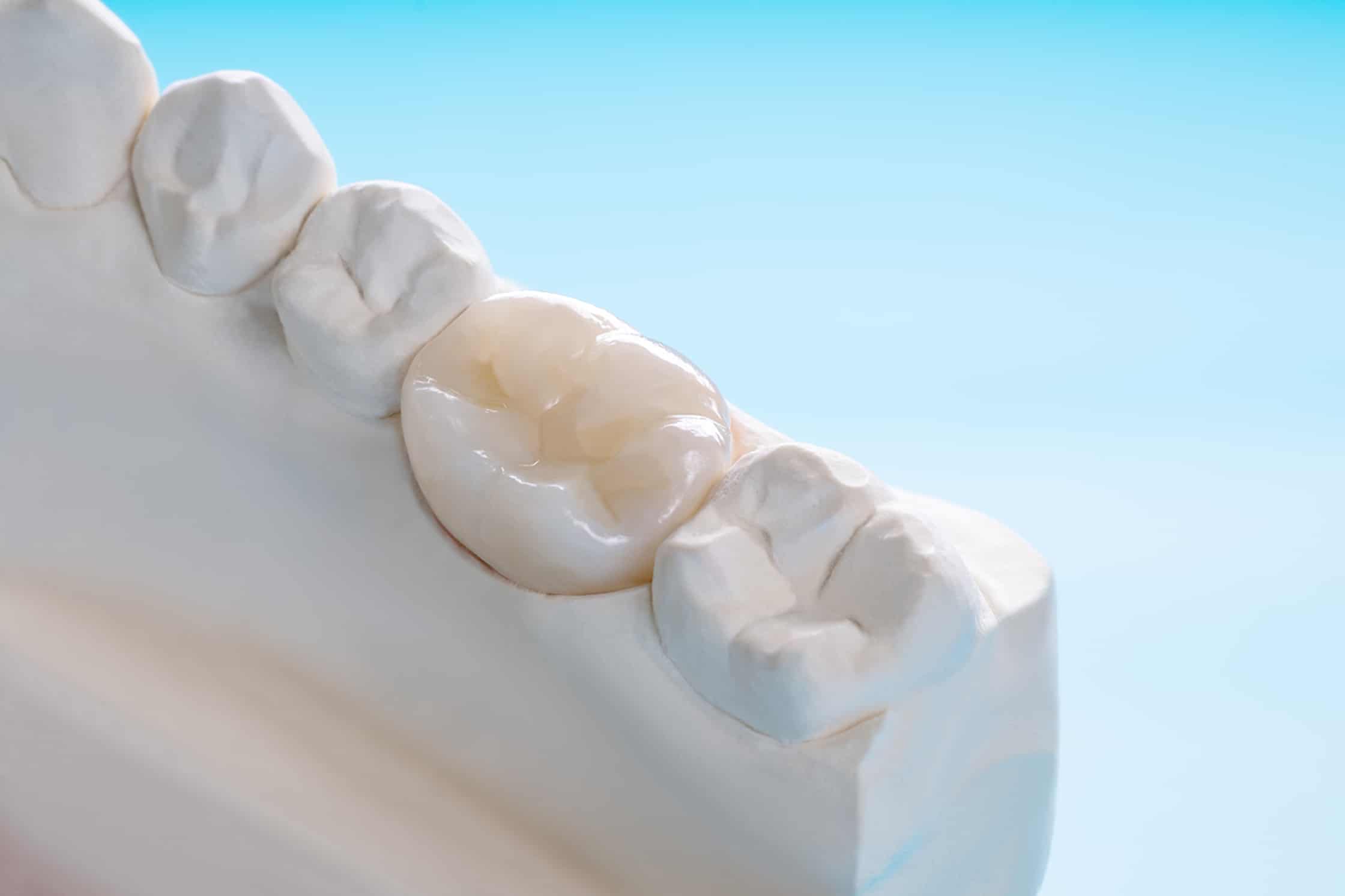Dental Crowns
Dental Crowns in Ridgeland, MS
The primary purpose of a dental crown is to strengthen and preserve the structure of a compromised tooth. With a dental crown, you can regain your confidence and enjoy the appearance of a healthy, natural-looking tooth. At Murphey Dental Aesthetics, we utilize the latest techniques and materials to ensure your tooth crown is precisely crafted, durable, and aesthetically pleasing.

Dental Crowns in Ridgeland, MS
The primary purpose of a dental crown is to strengthen and preserve the structure of a compromised tooth. With a dental crown, you can regain your confidence and enjoy the appearance of a healthy, natural-looking tooth. At Murphey Dental Aesthetics, we utilize the latest techniques and materials to ensure your tooth crown is precisely crafted, durable, and aesthetically pleasing.

What is a Dental Crown?
A dental crown, or tooth cap, is a versatile dental restoration used to restore the shape, size, strength, and appearance of a damaged or weakened tooth. By fully encasing the tooth, a crown helps to strengthen and stabilize it, preventing further deterioration and potential tooth loss. It acts as a protective barrier, shielding the underlying tooth structure from bacteria, acid erosion, and external forces during chewing.
What are the Benefits of a Dental Crown?
If you have a damaged or weakened tooth or have undergone a root canal or other dental treatment, a dental crown may be the ideal solution to restore your tooth’s function. Not only do dental crowns provide functional benefits, but they also offer cosmetic advantages. They can be customized to match the shape, size, and color of your natural teeth, ensuring a seamless and aesthetically pleasing result. Dental crowns can help treat:
- Severe tooth decay
- Fractured or broken teeth
- Large fillings
- Worn-down teeth
- Misshapen or discolored teeth
- Root canal-treated teeth
What’s Involved in the Dental Crown Procedure?
- Consultation and Treatment Planning – Dr. Murphey will assess your oral health, discuss your specific needs and concerns, and create a customized treatment plan for your dental crown.
- Tooth Preparation – The tooth receiving the crown will be prepared by removing any decayed or damaged portions. The tooth is reshaped to create space for the crown to fit properly. Our team will take a mold of your tooth to create a custom-made crown that fits your tooth perfectly.
- Temporary Crown Placement – While the permanent crown is being fabricated in a dental laboratory, a temporary crown is placed over the prepared tooth to protect it. The temporary crown provides aesthetics and functional benefits until the final crown is ready.
- Crown Placement – Once the permanent crown is ready, we will remove the temporary crown and place the final crown over your prepared tooth. We will check its fit, color, and bite to ensure proper alignment and function.
What are the Types of Dental Crowns?
When it comes to dental crowns, various materials can be used based on your specific needs and preferences. The most common types are porcelain crowns and zirconia crowns.
Porcelain Crowns
Porcelain crowns are known for their natural appearance and ability to match the color of your existing teeth closely. They are an excellent choice for front teeth or any visible areas of the mouth. Porcelain crowns are highly durable and resistant to staining, providing long-lasting aesthetics. When bonded to the tooth, porcelain crowns are great options to be used on the back teeth to meet the demands of both aesthetics and durability.
Zirconia Crowns
Zirconia crowns are a popular choice for their exceptional strength and durability. They are made from a strong ceramic material known as zirconium oxide. These crowns are highly resistant to chipping or cracking, making them suitable for front and back teeth. They offer excellent aesthetics and can be color-matched to blend seamlessly with your natural teeth.
Caring for Your Crown
Proper care and maintenance are essential to ensure the longevity and functionality of your dental crown. Care for your new crown the same way you would care for a natural tooth. We recommend practicing good oral hygiene and avoiding chewing hard and sticky foods. Returning to visit for regular check-ups and professional cleanings allows us to monitor the condition and address any concerns with your dental crown.
How Long do Crowns Last?
The lifespan of a dental crown can vary depending on several factors, including the type of crown, oral hygiene practices, bite forces, and individual oral health. On average, dental crowns can last between 10 to 15 years or even longer with proper care. To maximize the lifespan of your crown, it’s important to maintain good oral hygiene, follow your dentist’s recommendations, and attend regular dental check-ups.

Restorative Dental Care in Ridgeland, MS
Don’t let dental issues hinder your quality of life. Contact Murphey Dental Aesthetics today to schedule your consultation and take the first step toward achieving a beautiful, healthy smile. During your visit, Dr. Murphey will assess your oral health, discuss your treatment options, and create a customized plan tailored to your needs. Our goal is to restore the form, function, and aesthetics of your tooth, allowing you to regain your confidence and enjoy a healthy smile.